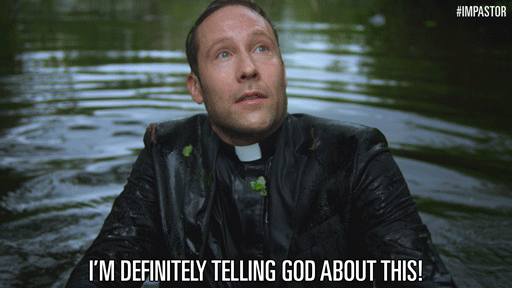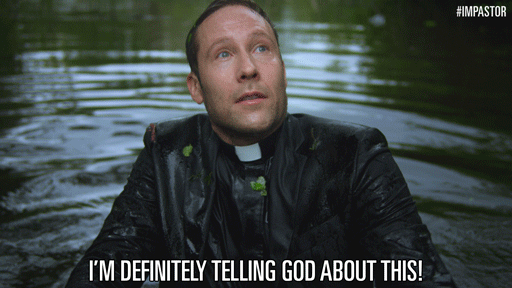Religious Intellectual Dishonesty

The story goes that I got in trouble with the priest when I was a kid because I asked too many questions. My inquiring mind wanted to know the context of biblical sayings, not just the quotes themselves. That carried on into my teenage years, when I sat in the back of the church and read the Bible, cross-referencing verses and making notes to look up in my history and science books later on. I would also look up works by theologians, especially the non-religious ones, to get a better understanding of why the Bible said what it said.
When one of my aunts said that the Book of Revelations clearly announced the end of the world, and how this end was surely to happen in her lifetime, I knew that it wasn’t the case. The Book of Revelations was written in code to the Christians of the time to warn them of the Roman Empire’s attempts at finding them and getting rid of them. Yes, there was a time when Christianity was outlawed, when emperors passed executive orders to find them out and kill them.
As an adult, I’m very skeptical when someone — especially a politician — quotes any kind of religious work in order to justify some injustice.
Exhibit A: Roger Marshall of Kansas
Roger is a Representative in Congress. He is also an obstetrician. When he was interviewed about the Affordable Care Act and how much he and his friends despise it, he gave a rather interesting take on why we as a country don’t need universal coverage for healthcare expenses:
“Like many other Republicans, Marshall said he wants the health care system to rely on the free market rather than Obamacare’s regulations. He measures success in how many people can afford to leave the Medicaid program and enter the private insurance market.
The law’s Medicaid expansion, which Kansas has not adopted despite support from many hospitals, including some of Marshall’s former colleagues, is one of the big sticking points for Republicans. Many GOP-led states adopted it and want to see it preserved in some form.
Marshall doesn’t believe it has helped, an outlook that sheds light on how this new player in Washington understands health policy.
“Just like Jesus said, ‘The poor will always be with us,’” he said. “There is a group of people that just don’t want health care and aren’t going to take care of themselves.”
Pressed on that point, Marshall shrugged.
“Just, like, homeless people. … I think just morally, spiritually, socially, [some people] just don’t want health care,” he said. “The Medicaid population, which is [on] a free credit card, as a group, do probably the least preventive medicine and taking care of themselves and eating healthy and exercising. And I’m not judging, I’m just saying socially that’s where they are. So there’s a group of people that even with unlimited access to health care are only going to use the emergency room when their arm is chopped off or when their pneumonia is so bad they get brought [into] the ER.””
And, you know, Jesus knows all about Conservatism.
“The poor will always be with us,” is not what Jesus said. The misquote comes from a statement made by Jesus and written in the Gospel according to Luke, chapter 14. In that chapter, we are told that priests and teachers were plotting to kill Jesus. It was right before Passover, though, so they didn’t want to chance getting the people very angry. Meanwhile, Jesus is in Bethany, visiting Simon The Leper. (That was probably not his actual surname.) While there, a woman breaks out some expensive perfume and anoints Jesus. Some of the people there get mad at the woman and say that the perfume could have been sold and the money used for the poor. Jesus rebukes them, telling them that there have always been poor people but now they choose to get incensed?
Here’s the full story from the New International Version:
“Chapter 14. 1 Now the Passover and the Festival of Unleavened Bread were only two days away, and the chief priests and the teachers of the law were scheming to arrest Jesus secretly and kill him. 2 “But not during the festival,” they said, “or the people may riot.”
3 While he was in Bethany, reclining at the table in the home of Simon the Leper, a woman came with an alabaster jar of very expensive perfume, made of pure nard. She broke the jar and poured the perfume on his head.
4 Some of those present were saying indignantly to one another, “Why this waste of perfume? 5 It could have been sold for more than a year’s wages and the money given to the poor.” And they rebuked her harshly.
6 “Leave her alone,” said Jesus. “Why are you bothering her? She has done a beautiful thing to me. 7 The poor you will always have with you, and you can help them any time you want. But you will not always have me. 8 She did what she could. She poured perfume on my body beforehand to prepare for my burial. 9 Truly I tell you, wherever the gospel is preached throughout the world, what she has done will also be told, in memory of her.”
10 Then Judas Iscariot, one of the Twelve, went to the chief priests to betray Jesus to them. 11 They were delighted to hear this and promised to give him money. So he watched for an opportunity to hand him over.”
As you can see, what Jesus said has nothing in common with what Roger is talking about. Roger thinks that he can fool his constituents into thinking that Jesus said something like, “There’s always going to be poor people. So don’t help them get affordable healthcare.” It was more like, “Now you’re worrying about the poor when you didn’t worry before? Now that someone is doing something nice for me? Now? Srsly?”

I was going to hunt down other examples of politicians misquoting the Bible they love second only to guns. But I have a lot of other things to get done. For now, I think this example is good enough to remind you to be skeptical of not only the things that come out of politicians’ mouths but the Bible quotes that people try to use to justify their stupidity. Something as simple as reading the entire passage they’re quoting and putting it in context is enough to reveal their deceit. After all, there is a reason why churches have historically discouraged the common folk from reading their sacred scripts.
This was not a sermon. I’m just saying.